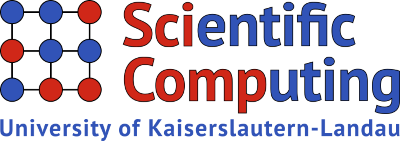Date and Place: Thursdays and hybrid (live in 32-349/online via Zoom). For detailed dates see below!
Content
In the Scientific Computing Seminar we host talks of guests and members of the SciComp team as well as students of mathematics, computer science and engineering. Everybody interested in the topics is welcome.
List of Talks
Event Information:
-
Fri13Dec2024
SC Seminar: Lisa Kusch
15:30Hybrid (Room 32-349 and via Zoom)
Prof. Lisa Kusch, TU Eindhoven, The Netherlands
Title:
Design of optical systems: Extending inverse design strategies for imaging and using neural networks for the design of optical surfaces.Abstract:
Optical systems are designed for various purposes: In non-imaging systems (e.g. lighting) optical surfaces shall guide the light to achieve a certain illuminance. For imaging systems (e.g. cameras, telescopes) light coming from a single point of the object shall also be focused on a single point of the image.
Inverse methods for optical design have been established in the past for designing illumination systems. The overall goal is to find freeform optical surfaces that convert a source distribution into a desired target distribution. With the help of laws for optics, it is possible to find the inverse solution of this problem. This involves solving the Monge-Ampere equation with a transport boundary condition. In this talk we extend the methodology to the design of imaging systems and propose an alternative process for finding the inverse solution.
Designing for imaging optics (cameras, scopes) aims at minimizing aberrations that are deviations from the perfect image on a given target surface. In the first part of this talk we derive an additional condition for inverse design to allow for the design of imaging systems. We apply this methodology for the design of a two-dimensional reflector system and compare the results to a classical design of a telescope system.
In the second part of this talk we will take a closer look at an alternative approach for solving the Monge-Ampere equation with transport boundary condition using a neural network. We impose properties of the underlying physical problem by formulating an appropriate loss function for training the network. The performance is compared to the classical solution strategy based on finite differences and the methodology is further analysed by performing a hyperparameter study.
Finally, we will see some future challenges for the design of imaging systems.
How to join online
You can join online via Zoom, using the following link:
https://uni-kl-de.zoom.us/j/63123116305?pwd=Yko3WU9ZblpGR3lGUkVTV1kzMCtUUT09
